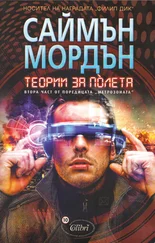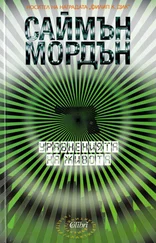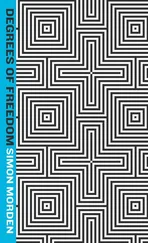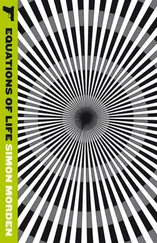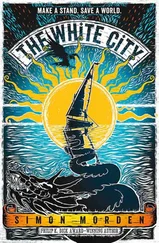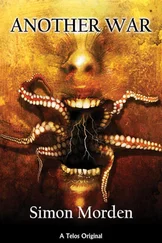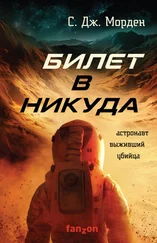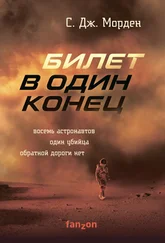‘Do you think I’m going to regret it?’ she asked.
‘What?’
‘Not, you know: not killing her.’
He shrugged, not that he had much strength left to do even that. ‘Ask me if I regret killing Stanislav.’
‘The storm killed him.’
‘Oh, come on. I knew what I was doing, luring him to the top of the mountain, using the knife to attract the lightning. He was human just enough to feel hate, but not enough to realise the danger. I killed him for certain.’
‘Do you regret it?’
‘Not now. Not today, and probably not tomorrow. Ask me next week, next month, next year if either of us is still around by then. My grandfather◦– have I told you about my grandfather?’
‘A bit, but go on.’
‘He was too young to join the army in the Second World War, but he did it anyway, lied about his age, fought for six years against the Japanese, got a chestful of medals, came home and…’ Communal violence, neighbour turning on neighbour. Partition, fleeing in the dark with his parents, aunts and uncles, nephews and nieces, brothers and sisters, and when the light of that first day dawned, it rose on fewer of them than had left. Refugees, relying on the kindness of strangers. Immigrants, in what should have been the Mother Country, but it was a cold love. ‘Eventually I happened. I remember him as this fiercely proud, deeply religious, honourable, dependable man, that even when it took all his strength to get up out of his wheelchair, he’d stand to attention as if he was still a child playing at soldiers.’
‘He sounds like a right handful.’
‘He was◦– drove my mum mad. If you’d asked him if it had all been worth it, he would have said yes. But he would have said it while remembering all the friends he’d lost, all the men he’d killed, all the suffering, all the fear, all the cruelty and callousness. I never said anything to him, but I did used to wonder if he really thought it had been worth it. He had nightmares, not every night; enough of them, though, that I knew about them. Stanislav? It was a thing that had to be done. Bell? Better leave it undone and make a mistake. We’re talking about killing: you can’t take it back.’
When his grandfather had died, those few of his compatriots left, who’d served with him and who’d also made their homes in Britain, gathered together at his house. They’d made a curious group, telling their stories, moustaches bristling, beards white as snow, turbans bright and tall. For brief moments, they shifted from little old men, coloured ribbons signifying past battles, to lions, fierce and terrifying, kirpans like claws, banners held high. The little children running around their legs knew nothing of war but its glamour and finery, even though they were both war’s legacy and its future combatants.
‘Bell’s going to hate me, that’s for sure.’ They’d reached the collapsed gatehouse, and together they slowly, carefully, climbed up the broken blocks to the top. He noticed the way she unselfconsciously waited for him to raise his foot to the next step before helping him up.
The tower was burning itself out. The roof had collapsed into the room below◦– whatever had been there, be it treasure or merely mundane, was lost for certain.
‘Do you think they made it out?’
‘Mama’s a tough old girl,’ said Mary. ‘She doesn’t take any messing, and it’s not like we don’t know how to run from fire.’
Flames were flickering behind the slits in the next storey down. It would all burn by morning, leaving nothing but a fragile, baked shell. The guardhouse? No. Not there. The only other substantial building still standing was the prison and the adjacent pit. As long as a stray spark didn’t carry, it was as safe as anywhere.
It had looked so substantial as to be timelessly permanent. Yet it had grown from the ground, and to the ground it would return. Down was capriciously generous, its gifts more often than not coming with a double edge.
Mary squinted against the brightness of the fire, peering into the shadows. ‘I can’t see them.’
The tower rumbled, and a fresh halo of smoke puffed out. The flames shifted and rose higher.
‘Try there.’ He indicated the door he’d once run out of, in the hope of escape. ‘We barred it before we got into the tower, but if they’re there, they can unblock it.’
‘The guards broke it down,’ she said. ‘Getting in shouldn’t be too hard.’
‘If not—’ He stopped himself. If the others were dead, and it was just him and Mary, then he was never going to be able to climb up to the bridge. He’d have to◦– again◦– leave it to Mary: she could fly up to the parapet, fearlessly navigate the unfamiliar dark, drag the furniture away from the door and finally appear smiling at the opening.
They started the slow descent from the gatehouse to the courtyard below. The wind was blowing north, chasing the storm away, and the pit lay to the south and west of the tower, so that even though the fire was intense, its worst effects were kept away from the squat building’s roof: scorched, yes, but not quite hot enough to cause ignition.
Dalip could feel the heat on his skin, though, as hot as it had been on the Underground. He knew that she felt it too, in her slowly increasing unwillingness to get closer. The guard-house door had been splintered and the pieces pushed back together again hard against the frame. There was hope.
He raised his fist and banged it ineffectually against the wood.
‘That’s not going to get anyone’s attention,’ she said, and used her own hand to batter at it. ‘Hey! Hey, it’s Mary and Dalip. Open up. Mama? Elena? Luiza?’
She propped Dalip against the doorstep, and moved back to shout into the night.
‘Mama? Mama?’
Then he thought he heard something from inside, close by rather than the cracking and roaring of burning.
‘Dalip?’
‘We’re here,’ he called. ‘Let us in.’
After a while, when he felt as baked as a bread, the door edged back.
‘Are you sure it’s you?’ asked Mama’s voice.
‘As sure as I can be,’ said Dalip, and Mary scowled at the opening.
‘Just open the fucking door.’
‘You have a bad mouth on you, girl,’ said Mama. She reached out and caught Dalip as he started to slide around the opening, resting him against her for a moment and beckoning for a chair.
It was mercifully cool inside, protected from the heat by the thick stone walls. Though it was dark, reflected red light shifted through the narrow window openings.
‘What happened to Stanislav?’ Luiza waited for Mary, then pushed the door closed. She started to shift the furniture back across the gap.
‘It’s… We dealt with it.’ He was very tired, very bruised, and felt as if his skeleton had been liquidised.
‘Did you kill him?’ She was very direct, and he did her the courtesy of doing the same.
‘Yes. Or at least, if he’s not, then it’s beyond me and probably anyone else.’
‘And Bell? Did you see her?’
‘Yes, we saw her. She attacked us, tried to kill us.’
‘So she is dead too?’
He looked at Mary, who turned instead to stare intently around the room.
‘No. But she won’t trouble us again. She knows she can’t beat—’ Us, he was about to say, but it wasn’t him Bell was afraid of. ‘Not while we have Mary.’
Luiza glanced at her, started to form an objection, then shrugged. ‘Just as long as we are safe.’
It was a strange kind of safe: sheltering in his former prison, while the tower next door burnt to the ground, the dead lying both inside and out while the castle collapsed around them. But safe nevertheless: they weren’t going to come to any further harm, at least for that night.
Читать дальше
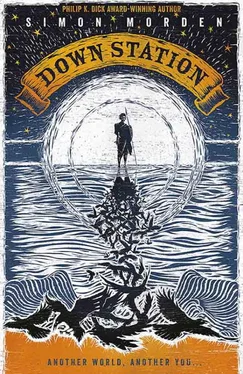
![Саймон Морден - Билет в никуда [litres]](/books/388091/sajmon-morden-bilet-v-nikuda-litres-thumb.webp)
![Саймон Морден - Билет в один конец [litres]](/books/395533/sajmon-morden-bilet-v-odin-konec-litres-thumb.webp)

